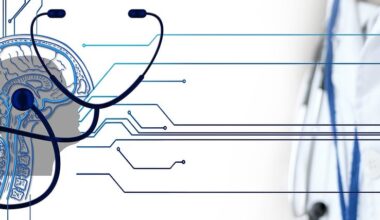Eating Disorders and Anti-Discrimination Laws: Protecting Patients’ Rights
Eating disorders represent severe mental health conditions that can lead to long-lasting physical and emotional harm. Awareness of these disorders has gained importance in recent years, prompting the need for comprehensive legislation to protect individuals affected by them. Anti-discrimination laws play a crucial role in safeguarding patients’ rights and ensuring they receive appropriate care without stigma. These rights are essential in educational settings, workplaces, and healthcare facilities. Protecting the rights of individuals with eating disorders helps in reducing the societal stigma that surrounds these conditions. When laws are in place to support patients, it encourages more people to seek help. This process can significantly improve their chances of recovery. Advocating for such legislation also raises awareness about the seriousness of eating disorders, facilitating better understanding and empathy from the public. However, many individuals still face discrimination, and it is vital for advocates and policymakers to work together in addressing these issues effectively. Overall, establishing anti-discrimination laws is a significant step towards promoting the rights and dignity of those suffering from eating disorders.
One of the significant barriers individuals with eating disorders face is the stigma related to their condition. Many people still believe eating disorders are merely lifestyle choices rather than serious health issues. This perception often leads to discrimination in various settings, including schools and workplaces. Individuals may be unfairly judged based on misconceptions and stereotypes, affecting their mental health and willingness to seek help. Anti-discrimination laws can aid in challenging these harmful beliefs by promoting education and awareness about eating disorders. By outlining the rights of patients, legislation serves as a shield against stigma and unfair treatment. Policies that protect individuals from discrimination enable them to access necessary treatment without fear of social repercussions. Moreover, as society becomes more aware of the complexities of eating disorders, there is hope for reducing stigma. In turn, this can improve recovery rates, as individuals feel empowered to share their experiences and seek assistance. Broadening the understanding of eating disorders will ultimately contribute to a more inclusive environment, ensuring dignity, respect, and support for everyone affected by these challenging conditions.
Legislation Supporting Patients’ Rights
Legislation focused on protecting the rights of individuals with eating disorders is crucial for fostering an equitable society. Laws that prohibit discrimination can provide safeguards against unfair treatment based on health conditions. As a key element of this effort, many countries have enacted laws that specifically include mental health issues within their anti-discrimination frameworks. These laws address various aspects of life, including employment, education, and access to healthcare. For instance, mandatory training on mental health issues for employers can create more supportive workplaces. In educational institutions, policies preventing bullying related to health conditions contribute to an inclusive environment for all students. The enforcement of these laws often encourages institutions to establish clear protocols to support individuals seeking help for their eating disorders. Furthermore, public awareness campaigns can accompany such legislation to enhance understanding within communities. As a result, advocacy groups can play a significant role in promoting these laws, ensuring they are effectively implemented. The broader societal impact of such legislation extends beyond legalities, encouraging a cultural shift towards empathy and understanding for those affected by these complex conditions.
A notable component of protecting the rights of individuals with eating disorders is ensuring they receive appropriate healthcare without discrimination. Many individuals struggle to access treatment due to misconceptions held by healthcare professionals. They may encounter biases that affect the quality of care they receive. Consequently, training on the specific needs of eating disorder patients is paramount for healthcare providers. Mental health practitioners, physicians, and even nutritionists should adhere to guidelines promoting sensitivity and understanding toward these conditions. Legislation can mandate such training, ensuring that healthcare providers are well-informed about the complexities involved with eating disorders. Furthermore, patients should also be made aware of their rights regarding healthcare access. Knowing what constitutes discrimination can empower them to speak out against unfair treatment. Advocacy organizations often assist individuals in navigating their rights within the healthcare system. By creating a culture where eating disorders are recognized as legitimate medical conditions, we can foster an environment conducive to healing. Comprehensive legislation not only defends patients’ rights but also enhances the quality of care provided, enabling more individuals to secure the support they need for recovery.
The Role of Advocacy in Legislative Change
Advocacy groups play a crucial role in promoting legislation that protects the rights of those affected by eating disorders. By raising awareness and providing education about these conditions, advocates can generate public interest in reforming existing laws. Partnerships between individuals with lived experiences and organizations can amplify voices, driving home the importance of legislative action. This collaboration often leads to well-drafted proposals that address specific areas requiring intervention, such as healthcare, education, and employment. Community events, workshops, and campaigns create platforms for sharing personal stories, which can evoke empathy and motivate policy change. Mobilizing public support is essential, as it signals to lawmakers the societal demand for reform. By engaging with policymakers, advocates can influence legislation directly, pushing for stronger protections and resources for those with eating disorders. Moreover, sustained advocacy efforts can lead to the establishment of support systems to aid those navigating the complexities of the legislative landscape. Ultimately, continued advocacy fosters a more informed society, ensuring that those with eating disorders can live without fear of discrimination while receiving the help they deserve.
Implementing anti-discrimination laws effectively is just as challenging as creating them. To foster genuine change, ongoing evaluation and monitoring become paramount. Agencies tasked with enforcing these laws must ensure compliance across all sectors, including education, healthcare, and employment. Regular reporting and data collection can provide insight into the effectiveness of existing legislation. Additionally, feedback from individuals experiencing the impacts of these laws is vital. Their perspectives can help identify gaps and areas needing improvement, guiding future policy adjustments. Organizations can partner with governmental bodies to share this feedback, advocating for necessary reforms based on real experiences. Transparency in the enforcement process encourages community trust in these laws and motivates individuals to report discrimination without fear. Moreover, rewarding institutions that demonstrate compliance can create positive incentives for adherence to anti-discrimination policies. The goal should be a continuous cycle of improvement that aligns with the needs of individuals with eating disorders. When patients feel protected by legislation, they are more likely to seek help, contributing to better recovery rates. Therefore, establishing an ongoing process for evaluation and reform is essential to promoting a supportive environment for all.
Looking Ahead: The Future of Eating Disorder Legislation
The future of legislation surrounding eating disorders looks promising, given the increasing awareness and advocacy surrounding these issues. Emerging trends point towards a more comprehensive approach, integrating mental health services with other healthcare initiatives. Cross-disciplinary collaboration can provide holistic solutions, addressing both physical and emotional needs for individuals with eating disorders. Moreover, legislative bodies are beginning to recognize the importance of preventative measures, focusing on education in schools that highlights mental health and wellbeing. Early detection and intervention can significantly alter the trajectory of individuals struggling with these disorders. Enhanced funding for research into effective treatments and care models can also shape future policies, creating more resources for both patients and healthcare providers. Additionally, international collaboration can lead to the sharing of best practices and successful legislative models, fostering a global awareness of eating disorders. Furthermore, as societal perceptions continue to evolve, there will likely be a growing commitment among policymakers to strengthen anti-discrimination laws. The potential for transformative change exists, ensuring that those affected by eating disorders receive the rights and support they deserve in every aspect of their lives.
Ultimately, the intersection of eating disorders and anti-discrimination laws forms a crucial framework for protecting patients’ rights. Awareness is vital in fostering an understanding of these mental health issues, while legislation acts as a powerful tool in combating discrimination. As society evolves, ongoing efforts from advocates, researchers, and policymakers can work together to create more inclusive environments for individuals affected by these conditions. Recognition of patients’ rights can lead to an empathic culture that encourages individuals to seek support and treatment without fear or stigma. It is essential to continue raising awareness, supporting legislation, and promoting education to ensure that those affected have access to care that respects their dignity. Strategies addressing discrimination must remain dynamic as societal attitudes shift and evolve. By leveraging knowledge, personal stories, and legislative advocacy, a brighter future can emerge for individuals suffering from eating disorders. The focus should remain on compassion, encouraging an environment where all individuals feel valued and understood. Through these collective efforts, we can create a society that respects rights, promotes wellbeing, and supports the recovery of those living with eating disorders.


